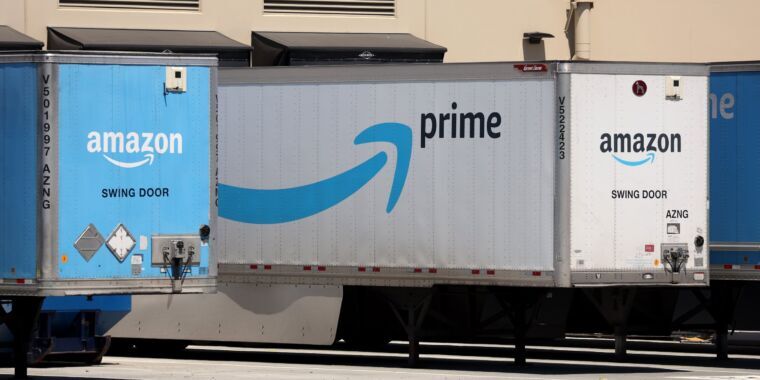That mom-and-pop Seattle operation just can’t catch a break.
It’s actually three medium-sized online platforms in a trench coat.
No wonder it’s so good at businessing. That Vincent, I tell you!
I recently saw someone suggest that America was just three corporations in a trenchcoat; so maybe it’s actually nine smaller corporations, in groups of three, each group in their own trenchcoat, and then those three groups get together in an even bigger trenchcoat 🤔🧥
What are the 3
Apple, google and microsoft.
But there is another trenchcoat with Amazon, Tesla and Berkshire Hathaway
It’s funny to me the lack of pharma, investing, oil, and defense contractors, in this list.
Blackrock is the top level no?
You know I live in Seattle, and you’re right. It’s like a small hole in the wall operation, Jeff Bezos works out of a window serving up boxes of stuff.
It’s not like they own entire neighborhoods or dominate the skyline or anything.
Must suck to run a little shack surrounded by all those used car dealerships between Mercer and Denny. That hasn’t changed since the '90s, right?
Nope still just as sad and rundown. It definitely looks the same every time I go down there, there isn’t always a new building going up for some large website.
Sweet! No doubt I can get some E-6 developed at Ivey Seright next time I’m in town.
Read the article folks. Amazon is claiming they don’t meet the definition in Europe, where there are other online retailers with more sales in those countries that are not flagged as ‘Very Large Online Platforms’. Amazon is simply claiming that them getting that designation and other online retailers of the same or larger sizes are not is unfair and Amazon shouldn’t receive that tag in those countries.
Amazon’s argument seems to boil down to “we sell products, not ads, so the law shouldn’t apply to us.” The EC response seems to be “what you would like the law to say is not what it says.”
Regardless, the fact that Amazon doesn’t like the law means it was written to protect consumers from corporations. In the states, we’ve completely forgotten that government is supposed to do precisely that.
Meanwhile, Amazon does sell ads. Sponsored products are advertisements.
I don’t remember the numbers but their ads division has been showing massive growth over the past several years, they make billions selling ads these days.
In the US, the Government does not represent the people, but those who buy elections. The people who buy elections have no incentive to change anything, and nothing will change in absence of a violent communist revoution
That is what they are saying which is pretty disingenuous. The entire point of the law is to target multinationals which cannot be reined in by national legislation.
Boo hoo, the poor tiny Amazon doesn’t want to take responsibility.
Yeah seriously there’s literally nothing to defend them about anything. Even doing so with something technically accurate is just plain blind.
They claimed that other _retailers _ don’t meet the definition, not other online retailers. It’s like saying eBay should be exempt from the law because ford sells more cars than them. It doesn’t really matter how many sales you have, it matters how many online people you serve. I seriously doubt the other retailers have anything close to 45 million monthly active users.
Did the EU even define the term “Very Large Online Platforms”? I think this is the bill, but it doesn’t ever define the term. Amazon may be right, purely because the legislators are incompetent idiots.
@delial 45 million users https://digital-strategy.ec.europa.eu/en/policies/dsa-vlops
Thank you! Here’s the actual PDF doc of their clarifications and here’s the original DSA
The specific language for number of users is:
average monthly active recipients of their service in the Union, calculated as an average over the period of the past six months
And the definition of active recipient:
(p) ‘active recipient of an online platform’ means a recipient of the service that has engaged with an online platform by either requesting the online platform to host information or being exposed to information hosted by the online platform and disseminated through its online interface;
So you just need 45 million EU citizens looking at a platform to qualify as a VLOP. Amazon probably qualifies, but it would be easy for them to prove they were unfairly discriminated against as well.
deleted by creator
Just a tiny startup hoping to become profitable one day
If amazon was solely a marketplace they may have an argument but seeing as they’re arguing the content moderation and targeted advertising to kids, they seem to be forgetting they own twitch, a very large online platform that serves ads out the ass
Which is a different platform, they’re not counted together.
Amazon is just a regular mom and pop shop struggling to compete with more substantial establishments.
🤣ROTFLMAO🤣














